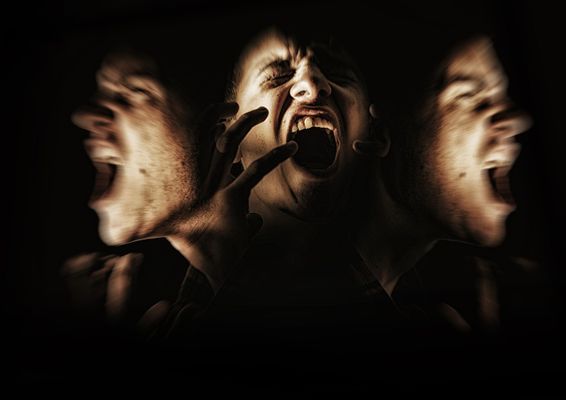2.1.2
Victor Frankenstein
Victor Frankenstein
Victor Frankenstein
The reader’s first meeting with the character of Victor is when he is saved from the icy waters by Walton. We learn of his monomania.


First meeting
First meeting
- The reader’s first meeting with the character of Victor is when he is saved from the icy waters by Walton, clinging onto a piece of ice and close to death after battling through the Arctic, searching for the creature he wishes to destroy.


Victor's tale
Victor's tale
- After recovering on board of Walton’s ship, he recounts the story of his privileged upbringing in Geneva, Switzerland.
- His story displays him as someone with a passion for knowledge which quickly becomes an obsession for grasping what he claims to be "unknown powers", wanting to be the first man to be able to "pour a torrent of light into our dark world" by "infusing life into an inanimate body".


Monomania
Monomania
- His monomania (obsession with one thing) results in him neglecting his family and friends and ignoring the advice from his father and University professors. He creates the Monster, who he then neglects and abandons. This results in the death and devastation of all who come into its path.
What do we Know About Victor?
What do we Know About Victor?
Victor had a charmed, loving childhood which makes his rejection of his progeny, the Monster, even more ironic.


Childhood
Childhood
- Victor had a charmed, loving childhood:
- "I was guided by a silken cord that all seemed but one train of enjoyment to me."
- "For a long time I was their only care."
- This makes his rejection of his progeny, the Monster, even more ironic.


Love
Love
- He falls in love with the orphan Elizabeth Lavenza who is adopted into his family, and believes from childhood that she is his true love and calls her "a possession of my own" displaying a typical patriarchal attitude towards women.


Knowledge
Knowledge
- Aside from his love for Elizabeth, the most passionate love Victor has is that he is "deeply smitten with the thirst for knowledge."
- His obsession for knowledge of "the secrets of heaven and earth that I desire to learn" leads him into committing a sin against nature, creating and abandoning the Monster.


Deaths
Deaths
- It could be said that Victor is guilty of all of the deaths that occur after the monster’s creation.
- Justine Moritz is executed because she does not admit to knowing the real story of the death of William Frankenstein, who also dies at the hands of Victor’s maniacal progeny.
- Elizabeth is also murdered after marrying Victor, as is Henry Clerval, his trusty best friend.


Fate
Fate
- Victor however does not see himself as guilty of these murders.
- Instead he sees himself as the victim of fate ("unparalleled misfortunes") and circumstance ("no creature had ever been as miserable as I was.")
What do we Know About Victor?
What do we Know About Victor?
Victor’s hamartia is his hubris and selfish ambition. The name Victor is a definite nod to his hubristic wish to be victorious in the face of science.


Hamartia (fatal flaw)
Hamartia (fatal flaw)
- Victor’s hamartia is his hubris and selfish ambition which isolates him from the world and creates a moral vacuum in which he creates the very instrument of his downfall: the Monster.


Victorious
Victorious
- The name Victor is a definite nod to his hubristic wish to be victorious in the face of science; wishing to "penetrate the secrets of nature" and be the victor of the human race by creating his own being without the aid of a woman.
- See the context section for information on the alternative title: The Modern Prometheus.


Corruption
Corruption
- He begins with a worthy aim: "if I could banish disease from the human frame and render man invulnerable to any but a violent death!"
- However, he is apparently corrupted by his desires, emphasised by the almost sexual language accorded to his desire to "penetrate into the recesses of nature."
1Narrative Structure
2Character Summaries
2.1Walton & Frankenstein
2.3Elizabeth, Justine & Henry
3Intertextuality & Allusions
3.1Intertextual References
3.2Philosophical & Scientific Theories
4Biographic Context
5Chapter Summaries
5.2Chapters
5.2.1Chapters 1-2
5.2.2Chapters 3-4
5.2.3Chapters 5-6
5.2.4Chapters 7-9
5.2.5Chapters 10-11
5.2.6Chapters 12-15
5.2.7Chapters 16-19
5.2.8Chapters 20-23
5.2.9Chapter 24 & Walton’s Last Letters
5.2.10End of Topic Test - Chapters 1-6
5.2.11End of Topic Test - Chapters 7-15
5.2.12End of Topic Test - Chapters 16-23
5.2.13End of Topic Test - Chapter 24 & Walton's Letters
6Key Themes
7Recap: Main Quotes
7.1Characters Quotes
7.1.1Walton - Quotations
7.1.2Victor Frankenstein - Quotations
7.1.3The Monster - Quotations
7.1.4The Educational Texts - Quotations
7.1.5Elizabeth Lavenza - Quotations
7.1.6Justine Moritz - Quotations
7.1.7Henry Clerval - Quotations
7.1.8Alphonse Frankenstein - Quotations
7.1.9The De Lacey Family - Quotations
Jump to other topics
1Narrative Structure
2Character Summaries
2.1Walton & Frankenstein
2.3Elizabeth, Justine & Henry
3Intertextuality & Allusions
3.1Intertextual References
3.2Philosophical & Scientific Theories
4Biographic Context
5Chapter Summaries
5.2Chapters
5.2.1Chapters 1-2
5.2.2Chapters 3-4
5.2.3Chapters 5-6
5.2.4Chapters 7-9
5.2.5Chapters 10-11
5.2.6Chapters 12-15
5.2.7Chapters 16-19
5.2.8Chapters 20-23
5.2.9Chapter 24 & Walton’s Last Letters
5.2.10End of Topic Test - Chapters 1-6
5.2.11End of Topic Test - Chapters 7-15
5.2.12End of Topic Test - Chapters 16-23
5.2.13End of Topic Test - Chapter 24 & Walton's Letters
6Key Themes
7Recap: Main Quotes
7.1Characters Quotes
7.1.1Walton - Quotations
7.1.2Victor Frankenstein - Quotations
7.1.3The Monster - Quotations
7.1.4The Educational Texts - Quotations
7.1.5Elizabeth Lavenza - Quotations
7.1.6Justine Moritz - Quotations
7.1.7Henry Clerval - Quotations
7.1.8Alphonse Frankenstein - Quotations
7.1.9The De Lacey Family - Quotations
Unlock your full potential with Seneca Premium
Unlimited access to 10,000+ open-ended exam questions
Mini-mock exams based on your study history
Unlock 800+ premium courses & e-books